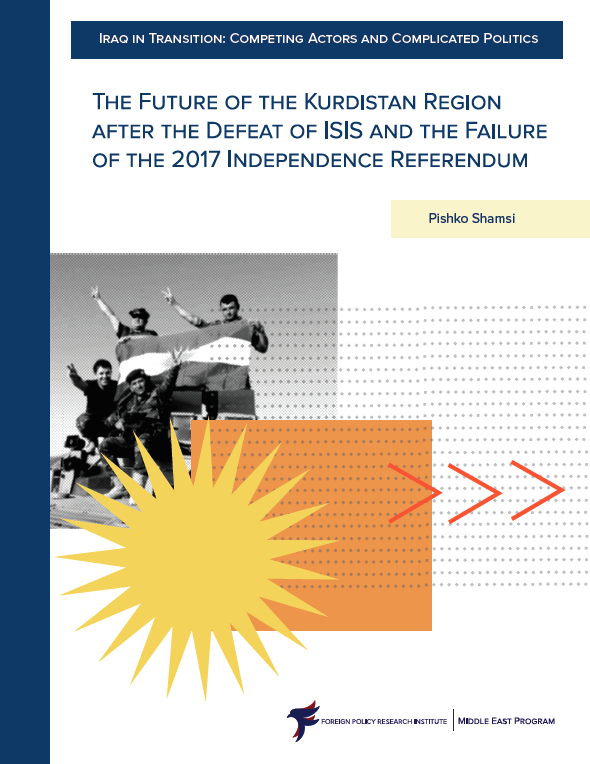A nation must think before it acts.
Abstract
In 2017, the Kurdistan Region of Iraq held an independence referendum, which triggered severe backlash, including the loss of control over the oil-rich city of Kirkuk. The backlash from the independence referendum prompted the regional government (Kurdistan Regional Government) to urgently shift policy and re-engage with Baghdad. Since then, the region has recovered politically and has implemented a pragmatic strategy to revitalize the economy and internal affairs. The KRG also launched diplomatic initiatives to restore relations with Iran and Turkey, and has pursued a policy of neutrality to manage the Region’s myriad of crises. Moreover, the KRG has pursued tactical alliances with Iraqi political parties to secure short-term gains, including the resumption of budget transfers from Baghdad.
The KRG’s deal-making with Baghdad, however, has fallen short of translating into a sustainable policy, and many of the gains are fragile and dependent on Baghdad’s changing political scene. Without a long-term strategy, the KRG’s new leadership is unlikely to be able to deliver much needed institutional reforms to help curb corruption, improve governance, and enhance transparency in public affairs. And while the KRG has committed to reform politically, it remains unclear if it will bring about meaningful change and address structural challenges, such as entrenched crony networks, rentier economics, and partisan control over the public sector and security forces.
The views expressed in this article are those of the author alone and do not necessarily reflect the position of the Foreign Policy Research Institute, a non-partisan organization that seeks to publish well-argued, policy-oriented articles on American foreign policy and national security priorities.
To view all the chapters in this volume as well as related multimedia, click here.






